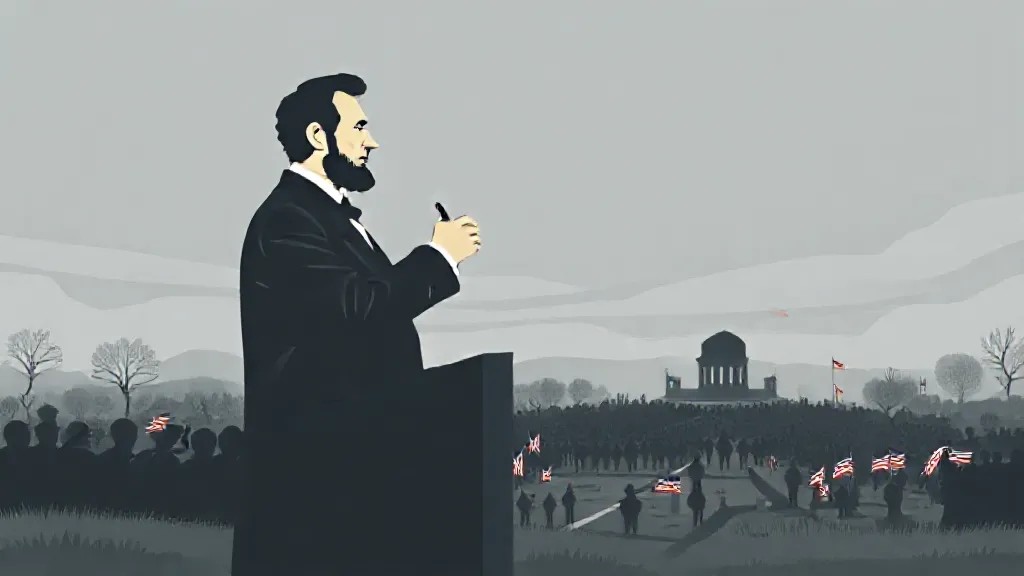Abraham Lincoln, the 16th President of the United States, is often hailed as one of the most influential figures in American history. His presidency, spanning from 1861 to 1865, was marked by significant events that not only shaped the nation during a tumultuous period but also laid the groundwork for its future. Lincoln's commitment to preserving the Union during the Civil War, his efforts in abolishing slavery, and his vision for a united America have left an indelible mark on the nation.
The Preservation of the Union
At the heart of Lincoln's presidency was the Civil War, a conflict that arose from deep-seated divisions over slavery and states' rights. Lincoln believed that preserving the Union was paramount, famously stating that "a house divided against itself cannot stand." His determination to maintain the integrity of the United States led to crucial military decisions, including the issuance of the Emancipation Proclamation in 1863, which not only aimed to weaken the Confederacy but also redefined the war's purpose to include the fight for freedom.
This strategic move transformed the Civil War into a moral crusade against slavery, galvanizing support for the Union cause.
The Emancipation Proclamation and Its Legacy
The Emancipation Proclamation was a pivotal moment in American history. While it did not immediately free all enslaved people, it signaled a shift in the federal government's stance on slavery and encouraged enslaved individuals to escape to Union lines.
This act laid the groundwork for the eventual passage of the 13th Amendment, which abolished slavery in the United States. Lincoln's bold decision to issue the proclamation demonstrated his evolving views on slavery and human rights, further solidifying his legacy as a champion of freedom and equality.
Lincoln's Vision for Reconstruction
Following the Civil War, Lincoln's vision for Reconstruction aimed to heal the nation and integrate formerly enslaved people into society.
He advocated for a lenient approach towards the South, believing that reconciliation was essential for national unity. His plan included the establishment of the Freedmen's Bureau, which provided assistance to newly freed African Americans. Unfortunately, Lincoln's assassination in 1865 curtailed his plans for a peaceful Reconstruction, leading to a more contentious era filled with challenges in race relations and civil rights.
The Gettysburg Address: A Defining Moment
One of Lincoln's most enduring contributions to American society is the Gettysburg Address, delivered in November 1863 during the dedication of a cemetery for Union soldiers. In this brief yet powerful speech, Lincoln emphasized the principles of liberty and equality, reaffirming the nation's commitment to democracy. The address has since become a touchstone for American ideals, encapsulating Lincoln's belief that the sacrifices made during the Civil War were essential for the survival of a government "of the people, by the people, for the people.
"
Advancement of Civil Rights
Lincoln's impact on civil rights extended beyond the abolition of slavery. His presidency set a precedent for future civil rights advancements, inspiring generations of activists who fought for equality. The principles enshrined in the Declaration of Independence gained renewed significance, as Lincoln's actions highlighted the importance of civil rights for all citizens.
His legacy would later influence the Civil Rights Movement of the 1960s, as leaders like Martin Luther King Jr. drew on Lincoln's vision of equality and justice.
Economic Transformation and the Industrial Revolution
Lincoln's presidency also coincided with the rise of the Industrial Revolution in America.
His policies, including support for the transcontinental railroad and the establishment of a national banking system, facilitated economic growth and modernization. These initiatives not only strengthened the Union during the war but also laid the foundation for America's emergence as a global economic power in the years that followed. Lincoln's foresight in promoting infrastructure development contributed significantly to the nation's economic transformation.
Lincoln's Enduring Legacy in American Education
Abraham Lincoln's influence extends into the realm of education as well. His belief in the importance of education for democracy and citizenship inspired the establishment of public schools and institutions of higher learning across the nation. Lincoln's vision for an educated citizenry capable of participating in democratic governance remains a cornerstone of American educational philosophy.
His legacy is evident in the continued emphasis on education as a means to empower individuals and promote social progress.
Conclusion: A Lasting Impact on American Identity
In conclusion, Abraham Lincoln's transformative impact on America is multifaceted, encompassing the preservation of the Union, the abolition of slavery, advancements in civil rights, and economic modernization. His leadership during one of the nation's darkest periods not only shaped the course of American history but also defined the values and principles that continue to resonate today.
Lincoln's legacy serves as a reminder of the ongoing struggle for equality and justice, inspiring future generations to uphold the ideals of democracy and freedom for all.
